When Research Turns To Paying One's Respects
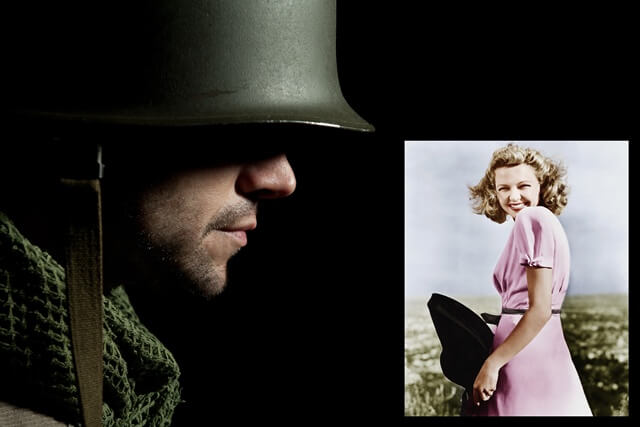
Research is an integral part of writing historical fiction. Accurate historical details will anchor the plot firmly into an era and invite the reader to immerse themselves into this alternative world. I enjoy reading well-researched historical fiction. Learning about our history helps us to understand how the past has influenced the society, environment and beliefs of today.
I have to admit that the research phase is one of my favourite parts of the writing process. When I was preparing to write The Cornish Affair (original title Waiting For Our Rainbow) which is a love story between an English woman, Anne, and an American soldier, Joe, during the leadup to D Day, I had a lot of research to do. Some of it involved major key elements (how did the American soldiers spend their time in England?) and the seemingly less important things (were American soldiers allowed to chew gum whilst in uniform?). It is easy to fall down the research rabbit hole, however, in my opinion, accuracy is very important as inaccuracy can jar with the reader and pull them out of the story.

I wanted to be respectful to all those who took part and tried my best to research the era well. In preparation, I read many WW2 books, liaised with the American historian, Joseph Balkoski (who was immensely helpful with my 29th Infantry Division research), watched numerous WW2 documentaries, listened to and read transcripts of interviews with people who were there at the time, looked at numerous newsreels, photographs and visited many Cornish locations where the American soldiers stayed, trained and embarked for D Day. Over the years I have visited many WW2 museums, both home and abroad. As one of the major characters in the book is Anne's younger brother, it was important for me to understand the perspective of the Cornish children at the time so I spoke to members of the older generation about their childhood memories, particularly their rural experience of the war and their first impressions of the American soldiers. I was also able to obtain a copy of the manual called Instructions For American Servicemen in Britain 1942 which was issued by the United States War Department to help smooth relations between the British hosts and the Americans 'invaders'. It was serious, but also amusing to learn how the Americans perceived the British and their government's attempt to keep their soldiers inline by avoiding bragging or unintentionally insulting us with bad manners or complaints!
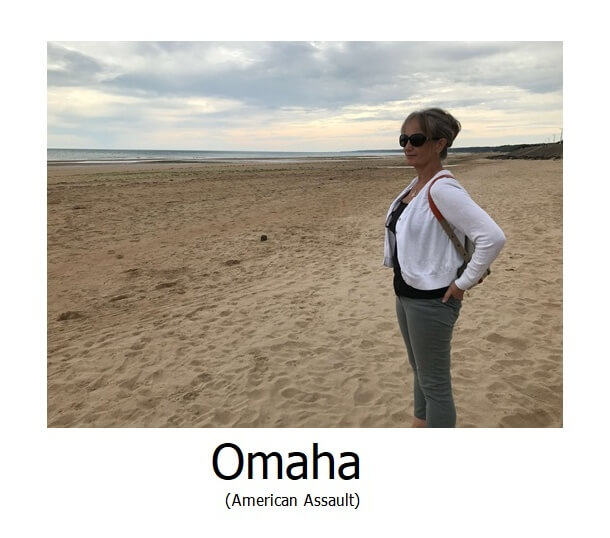
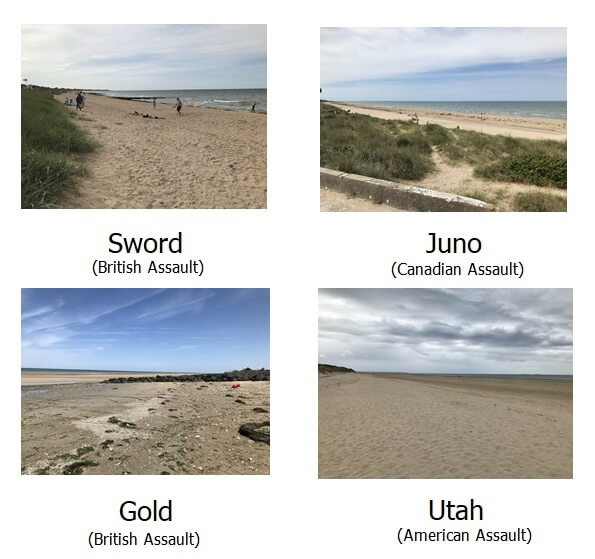
However, The Cornish Affair, (at the time called Waiting For Our Rainbow) was already published by the time I was able to visit the long coastal landing strip in Normandy where the soldiers landed on D Day. The event was, and still is, the greatest amphibious assault in history. During the planning of the invasion, the Normandy beaches were divided into sections (and subsections) and were given the code names Utah, Omaha, Gold, Juno and Sword. I have always wanted to visit the area and pay my respects to the brave young men who stormed those beaches under heavy military bombardment. Thousands lost their lives during that fateful day and the following three months as they moved inland to gain a foothold, begin liberating the occupied countries and stopping the Nazi tyranny that had engulfed much of Europe.
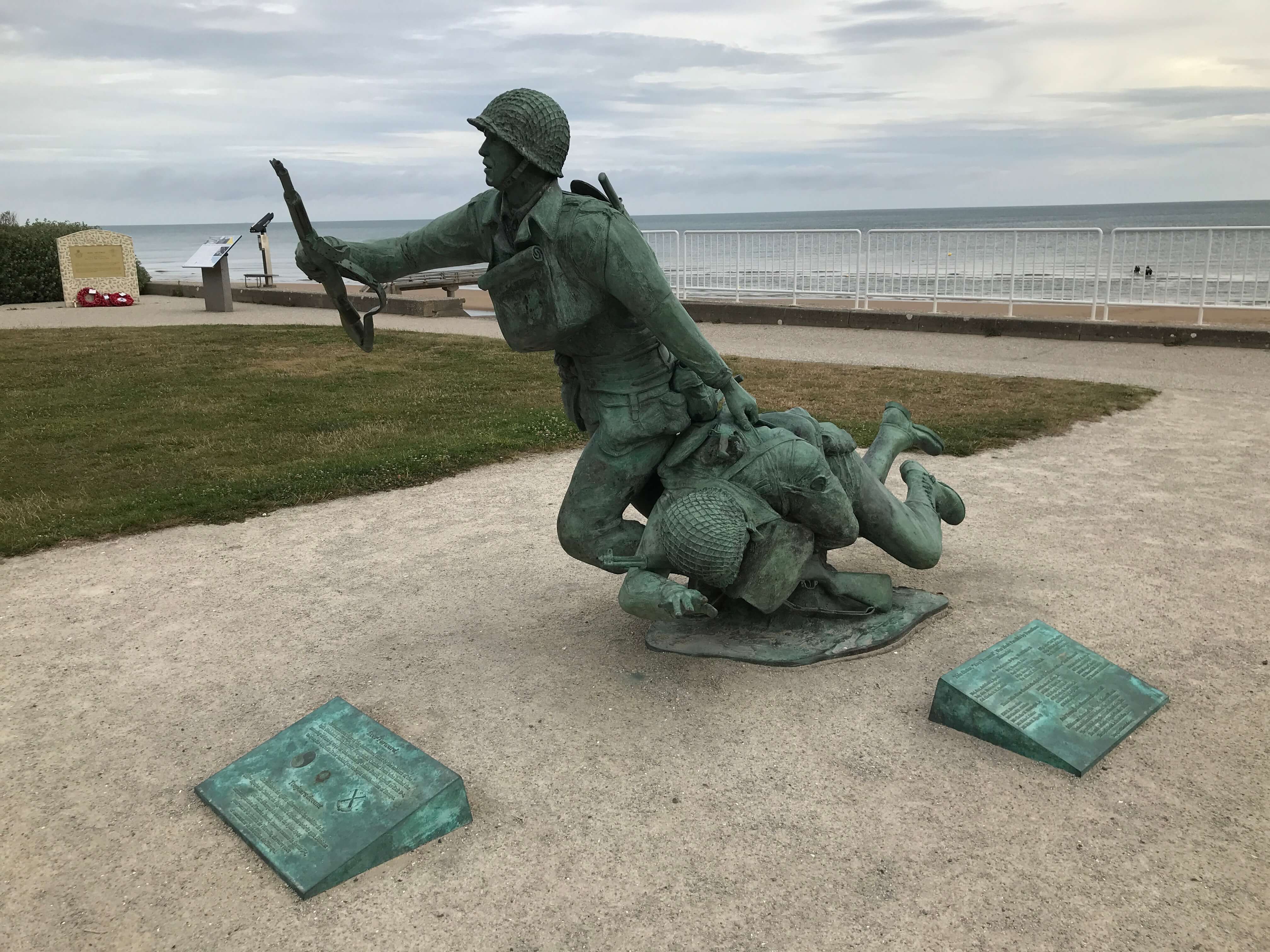
Joe's character was inspired by the documented experiences of some of the young Americans soldiers who formed the 29th Infantry Division and landed on Omaha beach during that assault. Omaha saw the most fighting, casualties and deaths and although I had no familial link to the soldiers who took part on any of those beaches that day, I could not help feeling moved as I stood on those beaches. My research to form the character of Joe embodied many of the men who were there. I strongly believe that a fictional story about the war has the power to reach an audience that would not normally pick up a military book or watch a military documentary. It's just another way of sharing the past. As I stood on Omaha beach I imagined Joe running across the sand and because I had researched him so well, I felt that I had come to know him and his character arc as if he had been a real man. Joe was fictional, but he was created from the experiences of many men. Joe was nobody but he symbolised many.
The tour of the beaches, which also included key battle sites and the telling of some amazing individual experiences, was organised by Rifleman Tours. It was thought provoking and heart rendering, particularly the visits to the Ranville Commonwealth Cemetery, the British Normandy Memorial (which overlooks Gold Beach) and the U.S. Cemetery at Colleville.
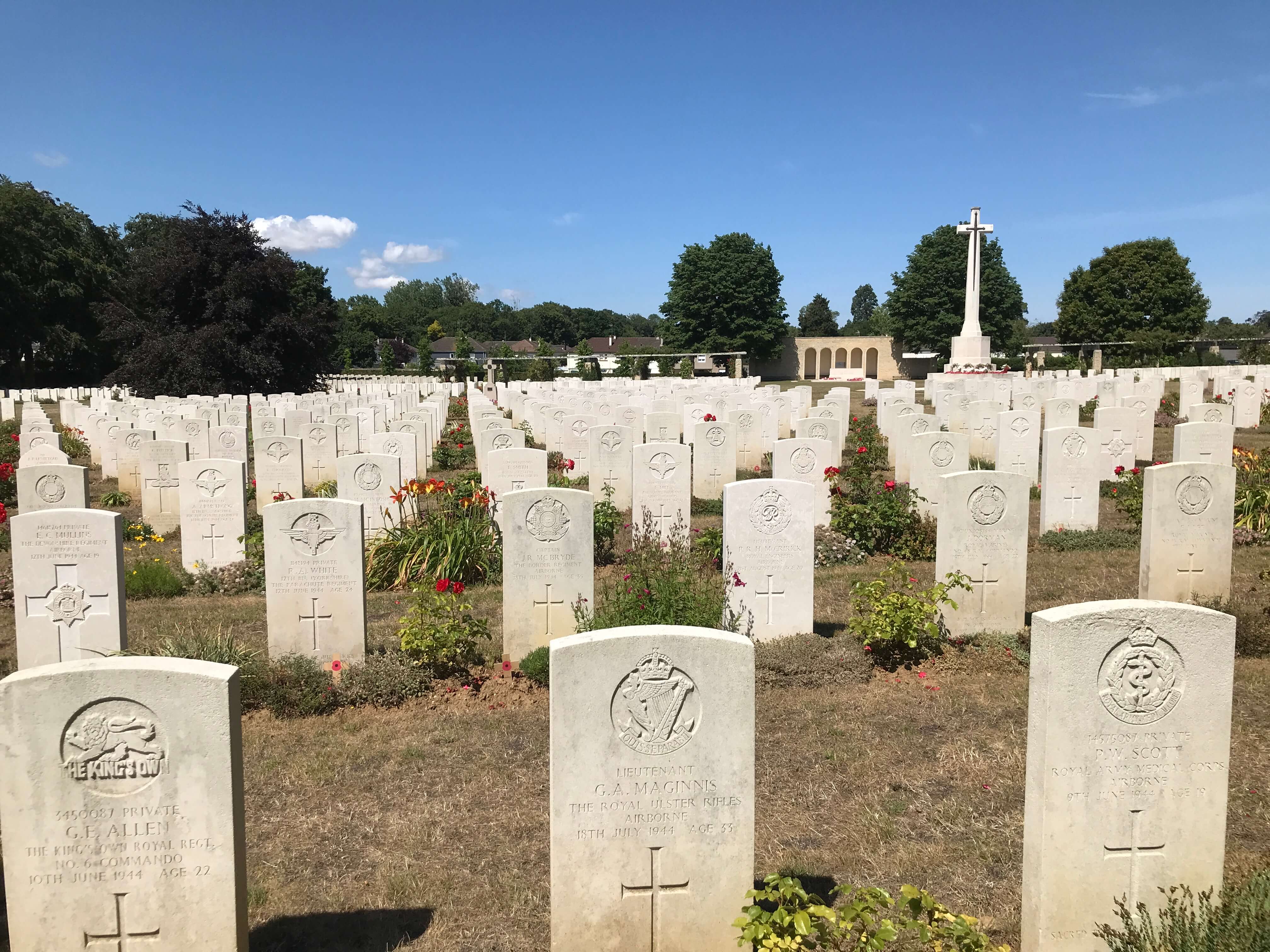
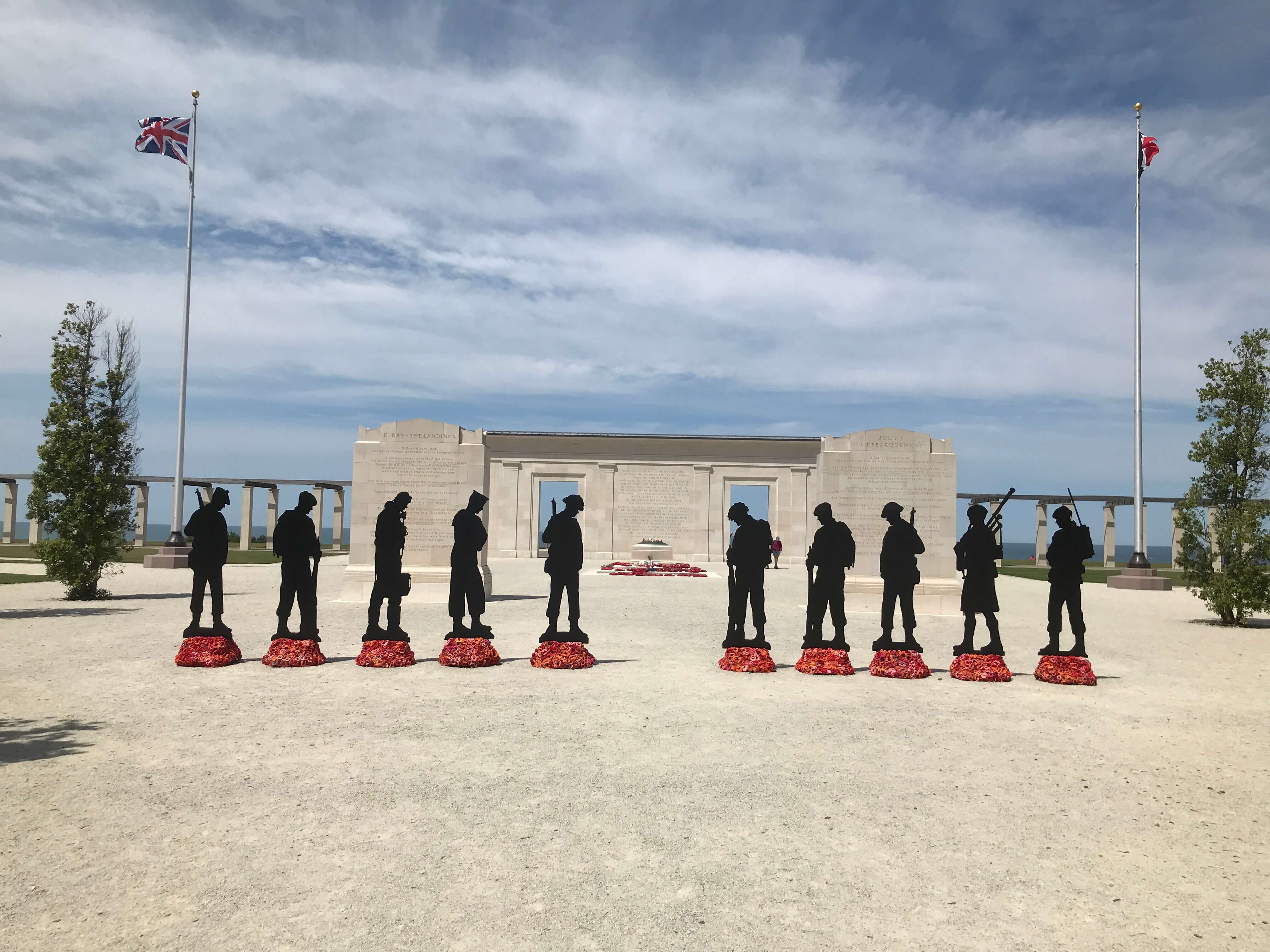
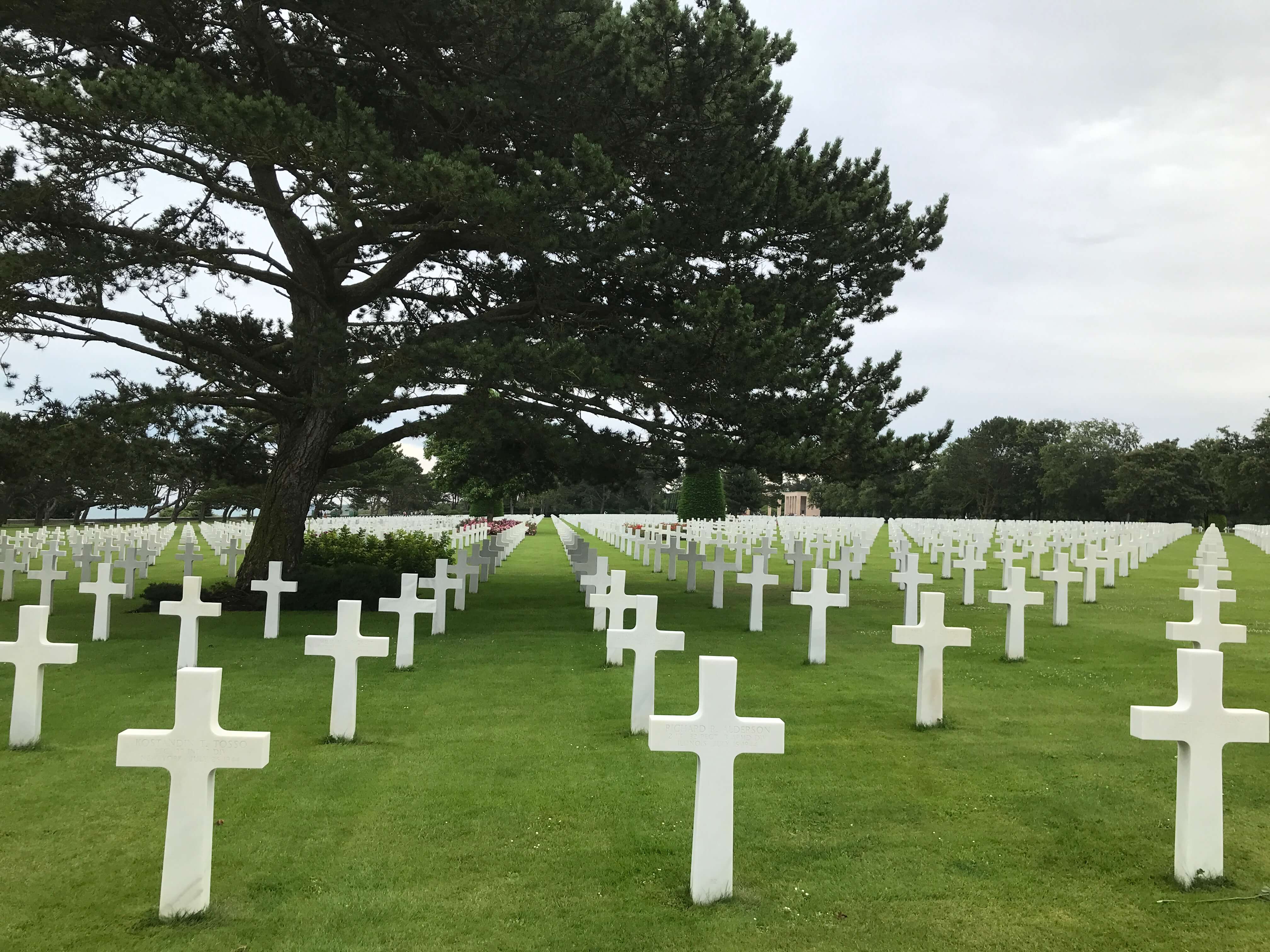
Visiting a location of an historical event, to me, often feels as if the past is reaching out to the present. And we should listen and acknowledge what the past is trying to tell us. We often hear the Kohima Epitaph spoken at memorial services. The original epitaph was created by Cambridge classicist, turned codebreaker, John Maxwell Edmonds, at the end of the first world war. In the years that followed, a modern version evolved and is often used today. The words are a perfect reminder of the bravery and sacrifice of any soldier who dies in war and it never felt more apt than when I paid my respects on the beaches and at the military cemeteries in Normandy, France.
When you go home
Tell them of us and say
For your tomorrow
We gave our today

To view on Amazon UK please click HERE
To view on Amazon USA please click HERE
